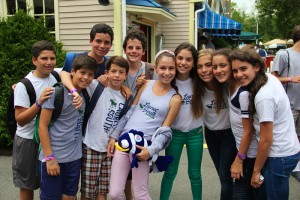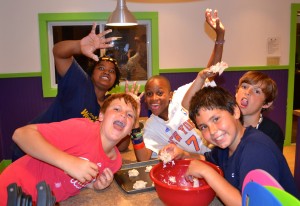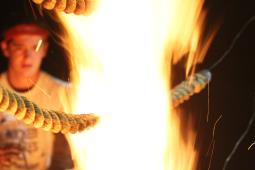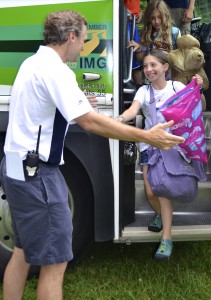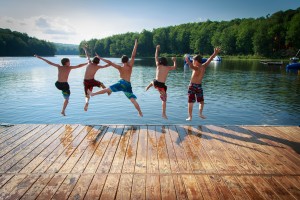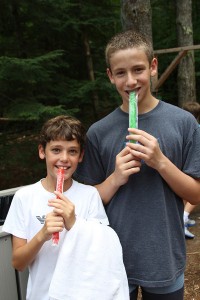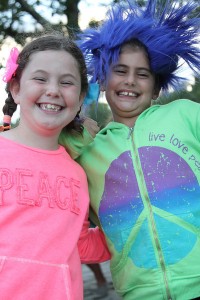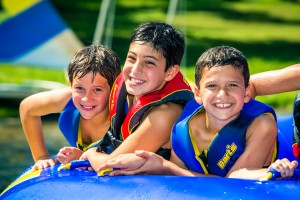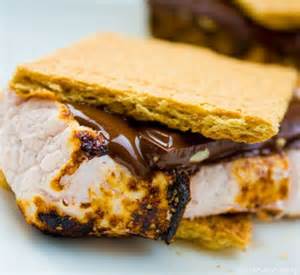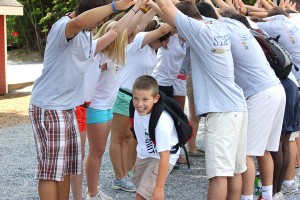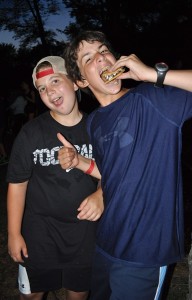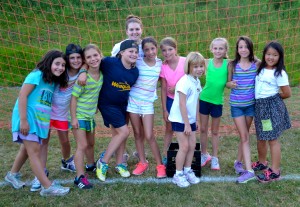 Attention college and university students: Have you started to think about how you’re going to spend next summer? Sure, it’s winter, it’s cold outside, and the thing you’re most worried about now are your upcoming finals. Perhaps in the back of your mind you’ve toyed with the idea of applying for an internship or two. But have you considered working at a summer camp? Right now, in the late fall and dead of winter, many summer camps are on tour, making stops at schools throughout the country and recruiting events around the world in search of the most caring, dedicated, enthusiastic and fun students who are interested in working with children. If you’re taking courses to become a professional in any field that pertains to the education, coaching or care of children, a summer spent working at camp is more valuable than any internship. Imagine how much you can dress up your resume after a summer living and working with children. Your understanding of diversity and your communication skills will also get a big boost because you’ll be working alongside people from all over the world, all walks of life and from a variety of professions. Best of all, you literally get paid to spend most of your days outdoors having fun while participating in activities with your campers!
Attention college and university students: Have you started to think about how you’re going to spend next summer? Sure, it’s winter, it’s cold outside, and the thing you’re most worried about now are your upcoming finals. Perhaps in the back of your mind you’ve toyed with the idea of applying for an internship or two. But have you considered working at a summer camp? Right now, in the late fall and dead of winter, many summer camps are on tour, making stops at schools throughout the country and recruiting events around the world in search of the most caring, dedicated, enthusiastic and fun students who are interested in working with children. If you’re taking courses to become a professional in any field that pertains to the education, coaching or care of children, a summer spent working at camp is more valuable than any internship. Imagine how much you can dress up your resume after a summer living and working with children. Your understanding of diversity and your communication skills will also get a big boost because you’ll be working alongside people from all over the world, all walks of life and from a variety of professions. Best of all, you literally get paid to spend most of your days outdoors having fun while participating in activities with your campers!
If you think working at camp sounds great but you’re not a person currently majoring in an area related to children, don’t be discouraged. Although students are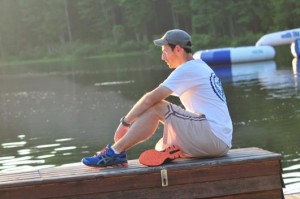 typically placed in camp counselor positions, there are many different types of roles at summer camp, and summer camp recruiters are always excited to meet and chat with candidates of any college major who may fill a special niche position. So even if you aren’t an athlete or education major, if you think you have a special talent or quality that you can bring as a camp staff member, don’t hesitate to pay summer camp recruiters a visit when they’re at your campus. You might just be that special candidate who is difficult to find but for whom a camp has definitely been searching.
typically placed in camp counselor positions, there are many different types of roles at summer camp, and summer camp recruiters are always excited to meet and chat with candidates of any college major who may fill a special niche position. So even if you aren’t an athlete or education major, if you think you have a special talent or quality that you can bring as a camp staff member, don’t hesitate to pay summer camp recruiters a visit when they’re at your campus. You might just be that special candidate who is difficult to find but for whom a camp has definitely been searching.
There are a few things prospective staff members should be aware of, though, and recruiters like to be up front with candidates. Working at summer camp is fun, and you’re certainly not going to be fetching coffee (except for yourself at meal times) or be lost in Excel spreadsheets cursing the invention of pivot tables. But you will work harder at summer camp than you probably ever have or maybe even ever will again. In fact, we in the summer camp industry have a motto that working at summer camp is the “hardest job you’ll ever love.” The hours are long. You can expect to be on duty from breakfast to bedtime, typically, six days a week. Summer camp is extremely fast paced and the environment is best described as “organized chaos,” so you have to be able to keep up with the pace and make split second decisions. Being able to stay positive and provide encouragement, even when it’s storming outside, you’re stuck in the bunk/cabin, and the soccer team (of which most of your campers are a part) just lost a big game, is critical. You have to be able to put on a smile and choose a positive attitude even on days when you wake up not quite feeling the summer camp vibe. You must also be able to care about and for someone else’s children as if they are your own for several weeks. It’s still important to remember that those campers assigned to you are your campers for the entire duration of camp, and you are expected to do your best to make sure that ALL of your campers have equal opportunity to have an amazing summer. If you’re dependent on your tech gadgets, you’ll likely experience a bit of culture shock. Summer camps encourage campers to enjoy their natural surroundings and forbid most electronic equipment such as cell phones, laptops, iPads, and Kindles. Staff members may keep them in camp lockers or safes for use in their off time, but they may not be kept in bunks/cabins or used while on duty.
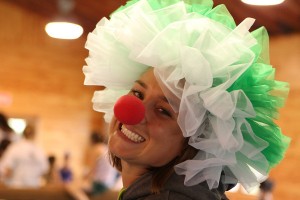 If you’re still reading after the “hard parts” of the job, you must really be interested in working at camp. So now that we have most of the difficult aspects out of the way, here are some fun and rewarding parts of the job. Your summer will be rent free. You’ll likely live in a bunk or cabin with another counselor or two and 8-12 campers. You’ll eat free, too, as your meals are provided. What that translates to is that you can save most or even all of your salary if you have no other financial obligations. The ability to be completely silly on the job when the situation merits is actually commendable. You’ll also get paid to play sports, swim, sail, make clay pots, build woodworking projects, make arts and crafts, do fun science and nature experiments, play crazy games, be in camp shows, go on trips with your campers, etc. You’ll likely make more friends in one summer than you have in the past several combined…real friends. Not just Twitter or Instagram followers. You’ll get to know some children who will remain in your heart long after camp has ended. You’ll also get to meet some staff members who choose to return to camp summer after summer. You may even decide that one summer working at camp is just not enough for you either. Regardless, a summer as a camp staff member just may be the summer that changes your life. Summer camps often get emails or phone calls from former staff members explaining how their time at camp clarified an education or career path. Sometimes it’s the collective of everything that happens over the summer that has such a profound effect on staff members. Sometimes it’s a single moment.
If you’re still reading after the “hard parts” of the job, you must really be interested in working at camp. So now that we have most of the difficult aspects out of the way, here are some fun and rewarding parts of the job. Your summer will be rent free. You’ll likely live in a bunk or cabin with another counselor or two and 8-12 campers. You’ll eat free, too, as your meals are provided. What that translates to is that you can save most or even all of your salary if you have no other financial obligations. The ability to be completely silly on the job when the situation merits is actually commendable. You’ll also get paid to play sports, swim, sail, make clay pots, build woodworking projects, make arts and crafts, do fun science and nature experiments, play crazy games, be in camp shows, go on trips with your campers, etc. You’ll likely make more friends in one summer than you have in the past several combined…real friends. Not just Twitter or Instagram followers. You’ll get to know some children who will remain in your heart long after camp has ended. You’ll also get to meet some staff members who choose to return to camp summer after summer. You may even decide that one summer working at camp is just not enough for you either. Regardless, a summer as a camp staff member just may be the summer that changes your life. Summer camps often get emails or phone calls from former staff members explaining how their time at camp clarified an education or career path. Sometimes it’s the collective of everything that happens over the summer that has such a profound effect on staff members. Sometimes it’s a single moment.
So if you want that summer that’s different, that will set your experiences apart from those of many of your friends, then be on the lookout over the next few months for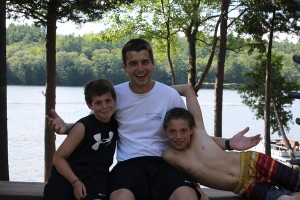 a visiting camp recruiter and go into spring break free of worries about how you’re going to spend your summer. If you happen to miss the campus tour, don’t be discouraged. You can also apply to work at summer camp through most camp websites. For a good start, visit the websites of America’s Finest Summer Camps.
a visiting camp recruiter and go into spring break free of worries about how you’re going to spend your summer. If you happen to miss the campus tour, don’t be discouraged. You can also apply to work at summer camp through most camp websites. For a good start, visit the websites of America’s Finest Summer Camps.
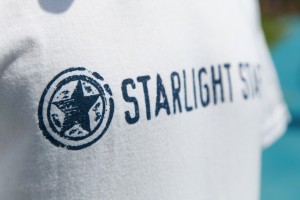 As the winter season is upon us, for many people, memories of the summer are fading but for a bunch of us, summer is still very much on the forefront of our minds. This is because we are camp counselors. Even though it’s been 4 months since we were at Camp Starlight, we are not quite used to the “real world” yet and long for a time when singing songs about napkins and moustaches is normal. A place where tutus for men, suspenders made of duct tape, and blue and white face pant is just typical everyday attire. A place that you “get” and it “gets” you.
As the winter season is upon us, for many people, memories of the summer are fading but for a bunch of us, summer is still very much on the forefront of our minds. This is because we are camp counselors. Even though it’s been 4 months since we were at Camp Starlight, we are not quite used to the “real world” yet and long for a time when singing songs about napkins and moustaches is normal. A place where tutus for men, suspenders made of duct tape, and blue and white face pant is just typical everyday attire. A place that you “get” and it “gets” you.
 570-798-9831
570-798-9831








